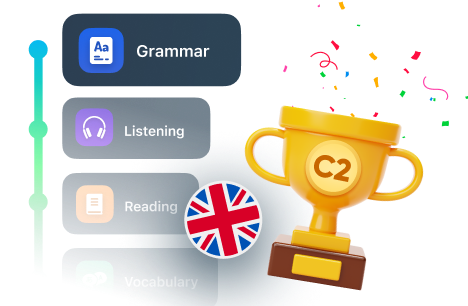
Using the Simple Future Tense to Talk About the Future
The simple future tense is one of the most commonly used verb forms in English, and you should be familiar with it if you want to communicate effectively.
The simple future tense is one of the most commonly used verb forms in English, and you should be familiar with it if you want to communicate effectively.
When to use simple future tense
Use the simple future tense to talk about events that will begin and end in the future. You can use it to talk about:
- Plans: I will read Macbeth this month.
- Predictions: It will rain tomorrow.
- Spontaneous decisions: I will pay the bill!
- To express willingness: I’ll make breakfast.
- To give orders: You will come down immediately!
- To give an invitation: Will you join me at dinner?
Simple future tense structure
To make a simple future tense, we simply add “will” or “shall” to the verb’s infinitive.
Examples:
Jake will spend Christmas with his family.
I shall go to my favorite coffee shop after the meeting.
We will watch your dog until you come back.
Simple future tense formula
Affirmative: will + verb infinitive.
Negative: will + not + verb infinitive.
Question: will+ subject + verb infinitive.
Examples:
I will probably see Bobby at Jill’s birthday party.
Emma says she will only go if you come with us.
Will she bake the cake by the time you get home?
Negative future simple tense structure
To make the simple future tense negative, simply add “not” after “will.”
Examples:
I will not go to the dentist tomorrow unless you go with me.
I will not go to the market tomorrow.
She will not sign the contract.
Simple future tense contractions
Keep in mind that in conversation or informal communication, “will” is often shortened to ‘ll, whereas the negative form “will not” often becomes “won’t.”
Contractions:
Instead of “I will” or “I shall,” you can use “I’ll.” In the same way, “we will” becomes “we’ll,” “you will” is “you’ll,” “he/she will” is “he’ll/she’ll,” and “they will” becomes “they’ll.” The negative form “will not” can be abbreviated to “won’t.”
Examples:
He’ll be home before midnight.
Do not worry, they’ll do the dishes.
Daniel won’t send you the invitation to the event.
I won’t sign the contract until I have read it.
Ask questions—Interrogative simple future tense structure
It is easy to ask a question—just make an inversion, i.e., place the word “will” before the subject of your sentence.
Examples:
Will he join me for a walk tomorrow if the weather is nice?
Will Jess break the rules after being grounded for two months?
Will you be ready for the concert on Sunday?
Did you get the topic?
Answer these short questions to check your knowledge of Future Simple!
“Going to” Construction
In addition to using the simple future tense, you can also talk about the future using the “going to” construction, which follows the formula of am/is/are + going to + verb infinitive. For example, you could say, “I am going to visit my grandparents next weekend.” This construction is used in informal writing and speech, which means you should avoid it in formal writing.
Technically, the “going to” construction isn’t the simple future tense—it is actually present tense, but we use it to talk about future events.
You can also use this formula to talk about plans or events that are based on the facts evident in the present.
Examples:
The sky is cloudy, and it seems like it is going to rain.
Our teacher told me that she was going to change my grade.
I am going to pay the bills after what happened last month.
Negative “Going to” structure
To make the Simple Future Tense negative, add “not” after am/is/are, or use contractions isn’t/aren’t.
I am not going to repeat myself after all that I have said.
Based on the forecast, it’s not going to rain.
They’re not going to paint the living room next month.
Interrogative “Going to” structure
To formulate a question, we do the same—make an inversion! Put am/is/are before the subject and end the sentence with a question mark:
Is she going to marry him after all?
Is your mom going to make lunch for everyone at the party?
Are you going to propose to her?


















